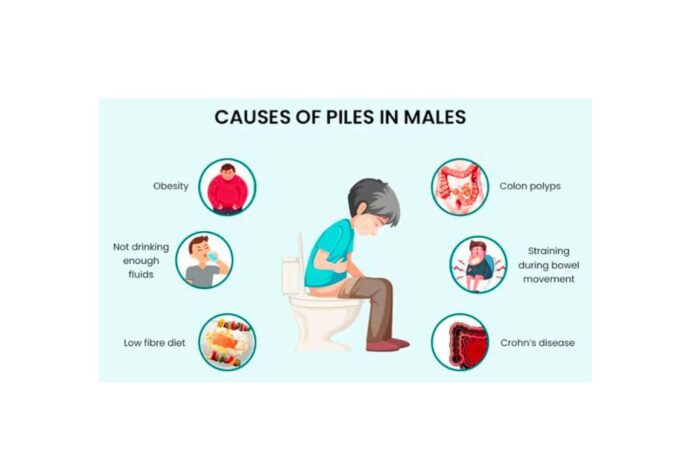
What Are Piles?
Piles, commonly referred to as hemorrhoids, are swollen and inflamed blood vessels located in the rectum or anus. They can be classified as internal (within the rectum) or external (beneath the skin surrounding the anus). Piles are a prevalent condition that can result in pain, itching, bleeding, and discomfort, particularly during bowel movements.
Causes of Piles
The following are the primary factors that contribute to the development of piles:
- Chronic Constipation
Straining to pass hard stools elevates pressure on the veins in the rectum.
- Low-Fiber Diet
A diet deficient in fiber can result in hard stools and irregular bowel habits, leading to the formation of piles.
- Prolonged Sitting
Extended periods of sitting, especially on the toilet, can exert additional pressure on the anal veins.
- Pregnancy
The increased pressure from the uterus and hormonal fluctuations during pregnancy may lead to the development of piles.
- Obesity
Excess body weight raises pressure in the lower abdomen and rectal veins.
- Heavy Lifting
Regularly lifting heavy objects can increase abdominal pressure, which may contribute to the occurrence of piles.
- Chronic Diarrhea
Frequent loose stools can irritate the anal region, potentially resulting in piles.
- Aging
As individuals age, the supportive tissues around the veins in the rectum and anus may weaken, increasing the likelihood of piles.
- Genetics
A hereditary predisposition to piles may elevate your risk of developing this condition.




